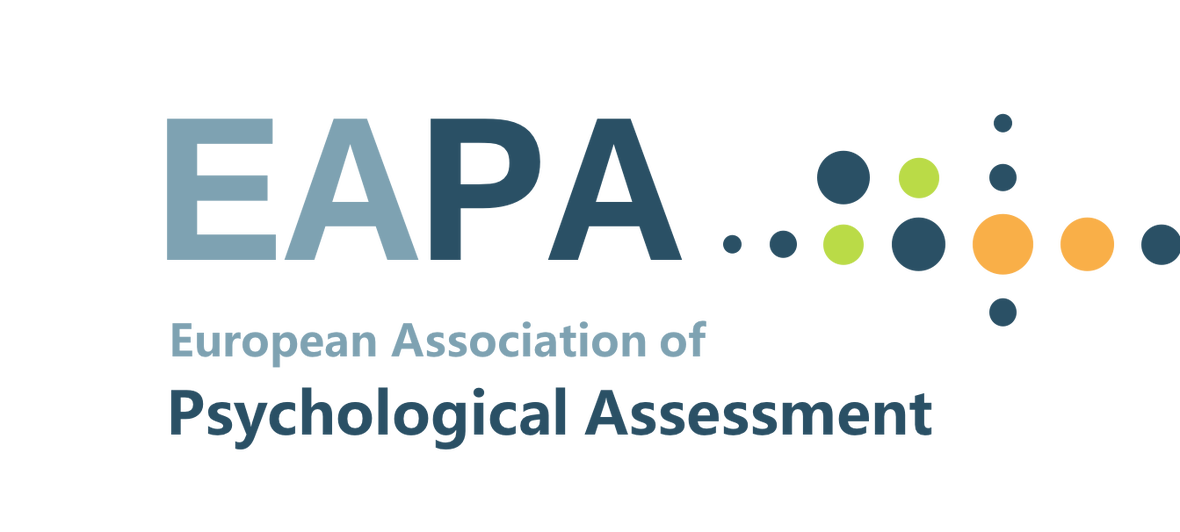Statements of EAPA presidents
Matthias Ziegler
What do you see as important tasks for EAPA and its members?
From clinics to schools to organizations and government initiatives, psychological assessment can be found almost everywhere. While this is a great achievement, it also means that many non-experts use assessments to derive decisions. In order to ensure the quality and fairness of these decisions, the tools used, processes implemented, and evaluation methods used need to be of prime quality. This is where the EAPA and its members are needed. EAPA should regard itself as the platform where experts, practitioners, and lawmakers meet. Moreover, our journal, the EJPA, should be regarded as one of the primary sources for high-quality research results regarding all aspects of assessment.
What works well in psychological assessment, and why is it important?
If we look into the past, it surely is an achievement that there is a widely agreed-upon standard regarding the psychological process. Norms such as the ISO 10667 or the DIN 33430 attest to this just as much as standard textbooks. Likewise, there are many well-validated assessment instruments and an astounding body of research focusing on methods from questionnaires and tests to interviews and behavior observation. This continued effort and practice-oriented output are important as it manifests the role of assessment in science and society.
What should be improved in the area of psychological assessment?
This is a difficult question… Singling out one or even just a few issues might sound as if all the other questions have been dealt with. I would not like to evoke such an impression. However, one issue I see is that researchers dealing with assessment-related issues need to be more aware of the practical consequences of their work. Moreover, as a psychological association, we need to be more active in promoting our findings, ensuring that they find their way to practitioners and lawmakers. Well, and finally, psychological assessment, just like many other disciplines, faces a huge challenge: Artificial Intelligence. It is my personal conviction that the future of psychological assessment can benefit immensely. This makes it even more important that we embrace this chance and help create AI-based solutions that live up to the quality standards we are so proud of.
Fons van de Vijver
What do you see as important tasks for EAPA and its members?
EAPA has an established tradition of organizing high-quality, well-attended conferences. These international meetings were and are helpful in informing each other about recent studies and developments in the field, and also play an important role to socialize with national and international professionals. EAPA also serves an important role in providing the aegis to the European Journal of Psychological Assessment.
What works well in psychological assessment, and why is it important?
Psychological assessment has a long tradition in psychology and the field has been remarkably successful in fostering the goals of psychological assessment: promoting high-quality instruments and establishing guidelines of adequate assessment and disseminating these guidelines. The field of cross-cultural assessment has become amazingly heterogeneous since its inception more than a c century ago. Still, this focus on quality and agreement on how to establish this quality has been a recurrent theme in its history. There have always been emerging themes and procedures. For example, when computers were introduced thirty years ago, the role of the computer in psychological assessment become prominent. The theme has been studied and attracts very little attention anymore. The most important issues have been addressed by now. More recently, assessment in cognitive science is becoming more important. This introduction may also follow a similar pattern of a quick rise, peak, and slow decline (unless we would be able to establish firm links between brain activity and relevant psychological behavior that would open up the need for new types of psychological assessment). However, there are also topics that remain unfinished and complex even after considerable study. The topic of behavioral assessment is a good example. Understanding the psychological meaning of such behavioral assessment procedures has turned out to be elusive.
What should be improved in the area of psychological assessment?
The fact that assessment has established itself as a discipline that you can study and teach has both an advantage and a limitation. The main advantage is the various achievements I described above. Yet, it is also important to realize the limitation of such independence: assessment has become a field that is not always well linked to its parental disciplines. Assessment can be simplified to a set of standard procedures in the process describing how instruments should be administered, analyzed and reported. However, good assessment is in interaction with personality, developmental and other types of psychology. What is often absent is that novel models in personality or organizational psychology are used as impetus to explore novel ways of assessment. If all is well, there is constant interaction and cross-fertilization of assessment and substantive models in psychology. Do not see that cooperation very often.
Karl Schweizer
In times of the so-called replication crisis high-quality assessment is more than just needed. Such assessment is necessary as basis and outset that can lead psychological research to a brighter tomorrow. EAPA should take a leading role in the process of equipping researchers with appropriate quality standards and all sorts of high-quality measurement devices.
Lutz Hornke
What do you see as important tasks for EAPA and its members?
EAPA should continue to bring together all those who are interested in diagnostic tools, their theoretical, methodological and creative design principles as well as their diverse applications. Therefore, it was and is important for experienced as well as junior scientists to meet for an open exchange of experiences, to openly discuss trends and diverse fields of application and to present their own work: However, anyone can read publications, but to meet the ideas and the people behind them, that makes lively meetings and incites lifelong professional friendships.
What works well in psychological assessment, and why is it important?
Statistical test theories are well established and the exchange of manageable computer apps works. The implementation of psychological constructs into formal instruments also works well. But new constructs, and in particular the substantiation of validity (s) for various psychological applications, must be further developed. Here, the international exchange of diverse fields of application and newly designed psychological instruments will be very stimulating. Validity notes are essential and stimulating.
What should be improved in the area of psychological assessment?
Substance and validity stand above methodical sophistication and aesthetic design, although these are necessary prerequisites for good assessment procedures. Big data analyses provide great insights into the relationships between reliability, predictability, and complexity of constructs, but should not be an end in itself. The psychological assessment has to answer real questions as well as to solve urgent problems of people in organizations / schools / companies. All researchers should be more aware of this service mandate than ever, and EAPA members should contribute to this perspective and responsibility beyond their own discipline.
Rocío Fernández-Ballesteros
What do you see as important tasks for EAPA and its members?
The important tasks corresponds to the aims of the Association that is to promote the scientific interest in and the study of psychological assessment throughout Europe and internationally. As it is states in its Statutes: the continues of the EJPA and other non-periodic publications, the organizations of Congresses and other scientific meetings, the promotion of research projects and other up-date seminars as well the enrichment of contact and co-operation with researchers, scholars and professionals.
What works well in psychological assessment, and why is it important?
As it is defined in Glossary of the “Guidelines for the Assessment Process” (GAP; EJPA, 2001,3,p.199) Psychological Assessment is the scientific professional activity of collecting, integrating and evaluating information about a subject using, whenever possible, different sources according to a previously-established plan, in order to answer client´s questions as well as the development, construction and evaluation of suitable means to gather and process case related information. Taking into consideration psychologists surveys about their professional work, it can be stated that psychological assessment is the core of scientific psychology.
What should be improved in the area of psychological assessment?
During the last decades ICTs are open new possibilities both for psychological assessment developments of new ambulatory measures and for testing new predicting equation modeling through artificial intelligence. I would expect that new efforts are going to be promoted and supported in the future on this field.


